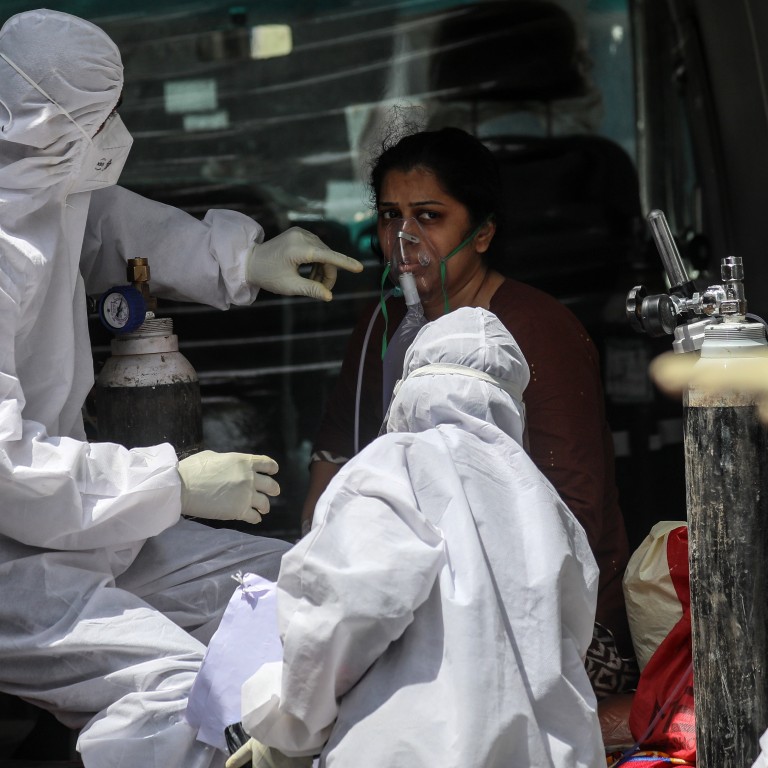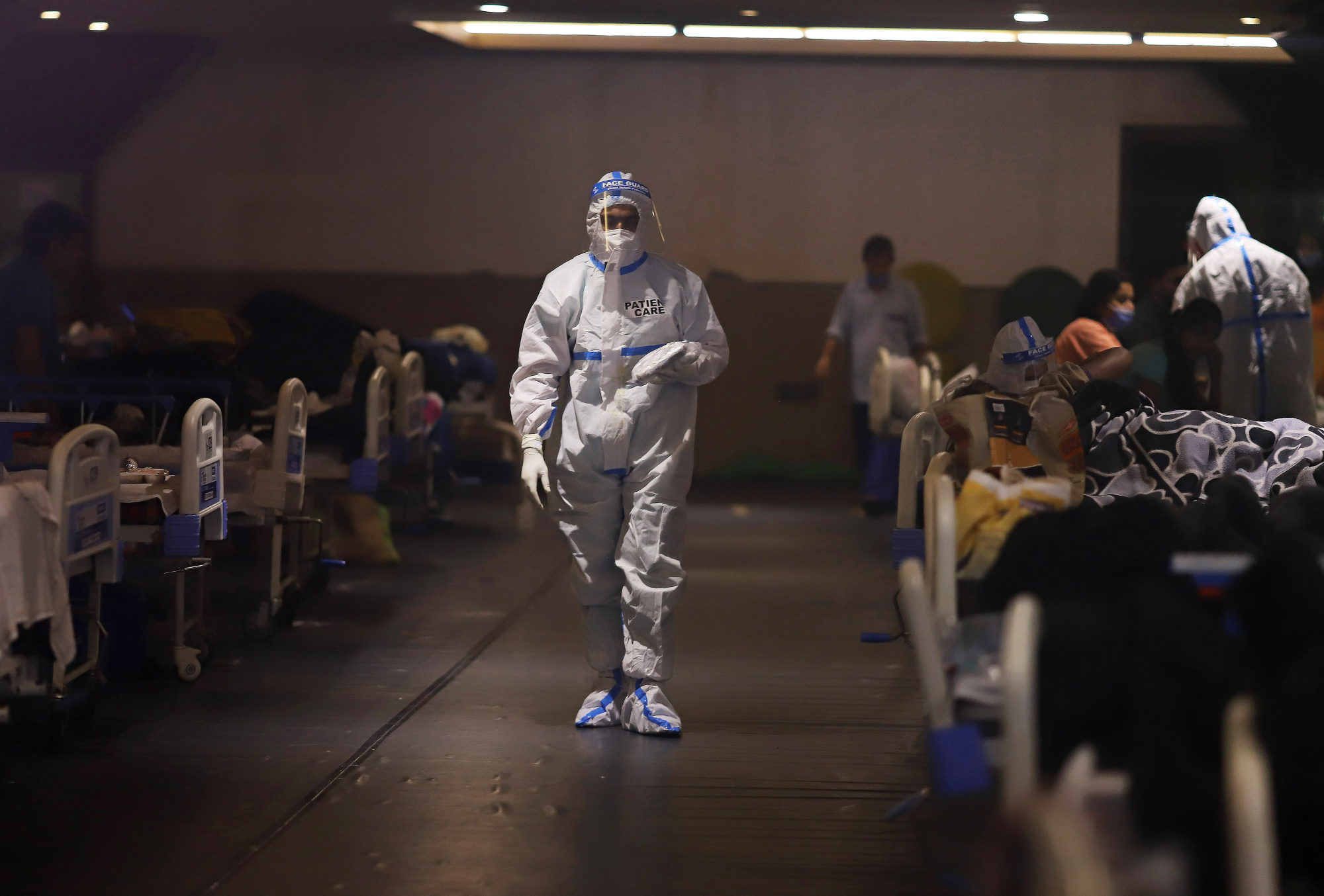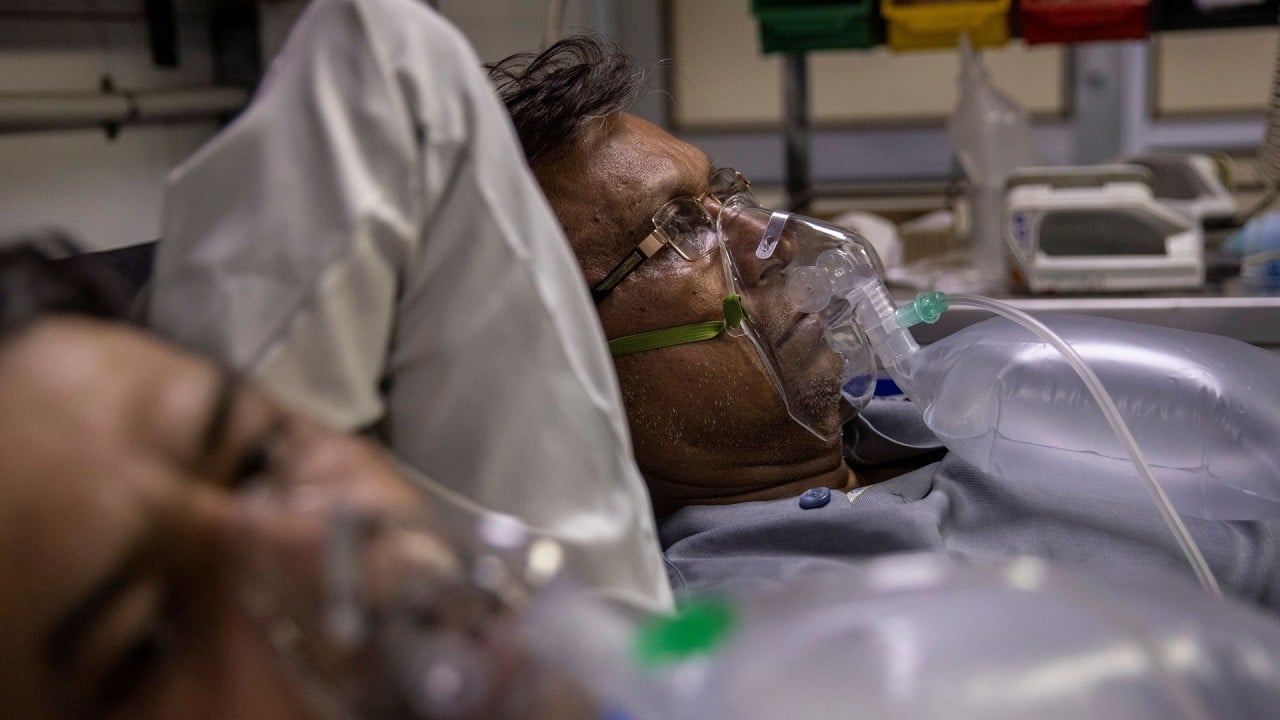
Coronavirus: India sees world’s highest one-day surge in cases with 314,835 new infections
- The nation at the heart of the world’s second-largest outbreak has recorded almost 16 million Covid-19 cases and 184,657 deaths so far
- Hospitals across northern and western India have issued notices to say they have only a few hours of medical oxygen required to keep patients alive
“The situation is very critical,” Dr Kirit Gadhvi, president of the Medical Association in the western city of Ahmedabad, said.
“Patients are struggling to get beds in Covid-19 hospitals. There is especially acute shortage of oxygen.”
As Covid-19 overwhelms hospitals, Indians seek help from WhatsApp
Krutika Kuppalli, assistant professor at the Division of Infectious Diseases, Medical University of South Carolina in the United States, said on Twitter the crisis was leading to a collapse of the health care system.
The previous record one-day rise in cases was held by the US, which had 297,430 new cases on one day in January, though its tally has since fallen sharply.
India’s total cases are now at 15.93 million, while deaths rose by 2,104 to reach a total of 184,657, according to the latest health ministry data.
Television showed images of people with empty oxygen cylinders crowding refilling facilities in the most populous state of Uttar Pradesh as they scrambled to save relatives in hospital.
“We never thought a second wave would hit us so hard,” Kiran Mazumdar Shaw, the executive chairman of Biocon & Biocon Biologics, an Indian health care firm, wrote in The Economic Times.
“Complacency led to unanticipated shortages of medicines, medical supplies and hospital beds.”
Delhi Health Minister Satyendar Jain said there was a crisis over the shortage of intensive care unit beds, with the city needing about 5,000 more than it could find. Some hospitals had enough oxygen to last 10 hours, others just six.
“We can’t call this a comfortable situation,” he told reporters.
Authorities have announced that vaccines will be available to anyone over the age of 18 from May 1 but India won’t have enough shots for the 600 million people who will become eligible, experts say.
Health experts said India had let its guard down when the virus seemed to be under control during the winter, when new daily cases were about 10,000, and it lifted restrictions to allow big gatherings.
Why is the world’s No 1 vaccine maker struggling to inoculate its people?
In recent weeks, the government has come in for criticism for holding packed political rallies for local elections and allowing a religious festival at which millions gathered.
This week, Modi urged state governments to use lockdowns as a last resort. He asked people to stay indoors and said the government was working to increase the supply of oxygen and vaccines.
On Thursday, despite the biggest public health emergency the country has faced in a generation, people were voting in the eastern state of West Bengal for a new state assembly in an election that Modi has been campaigning in.
“It’s a festival of democracy and everyone is participating. You can see the queues,” said Krishna Kalyan, a candidate from Modi’s ruling BJP.

“The double mutant ... is considerably more infectious than the older strain of virus,” said Gautam I. Menon, a professor at Ashoka University.
Angela Rasmussen, a virologist at the Center for Global Health and Science Security at Georgetown University said the situation in India was “heartbreaking and awful”.
“It’s the result of a complex mix of bad policy decisions, bad advice to justify those decisions, global and domestic politics, and a host of other complex variables,” she said on Twitter.
Morrison said he had agreed with state and territory leaders that the numbers of Australian citizens and permanent residents returning in chartered flights would be reduced by 30 per cent.
The government would soon announce a 30 per cent reduction in scheduled commercial flights from India as well, he said.
Additional reporting by Associated Press


